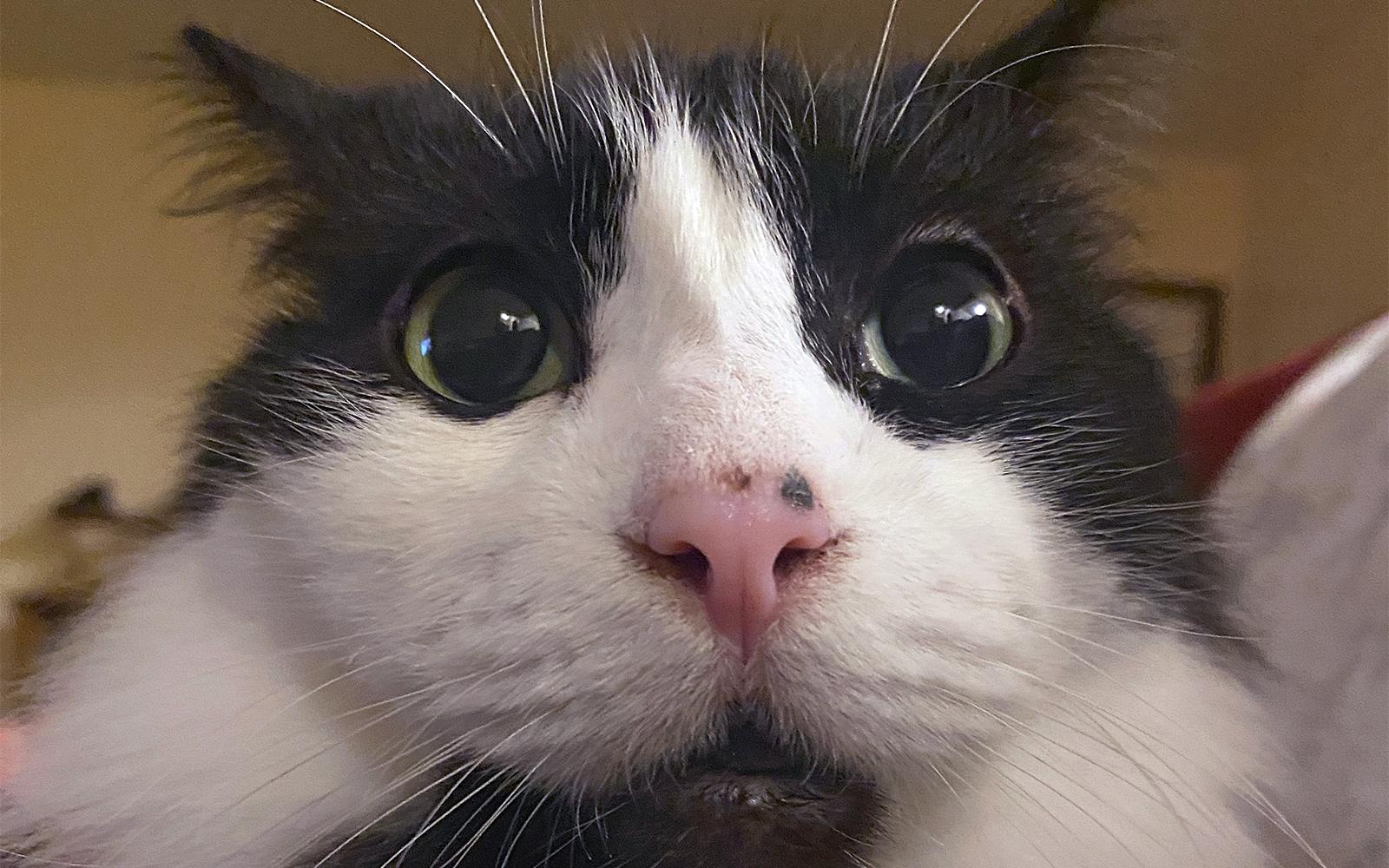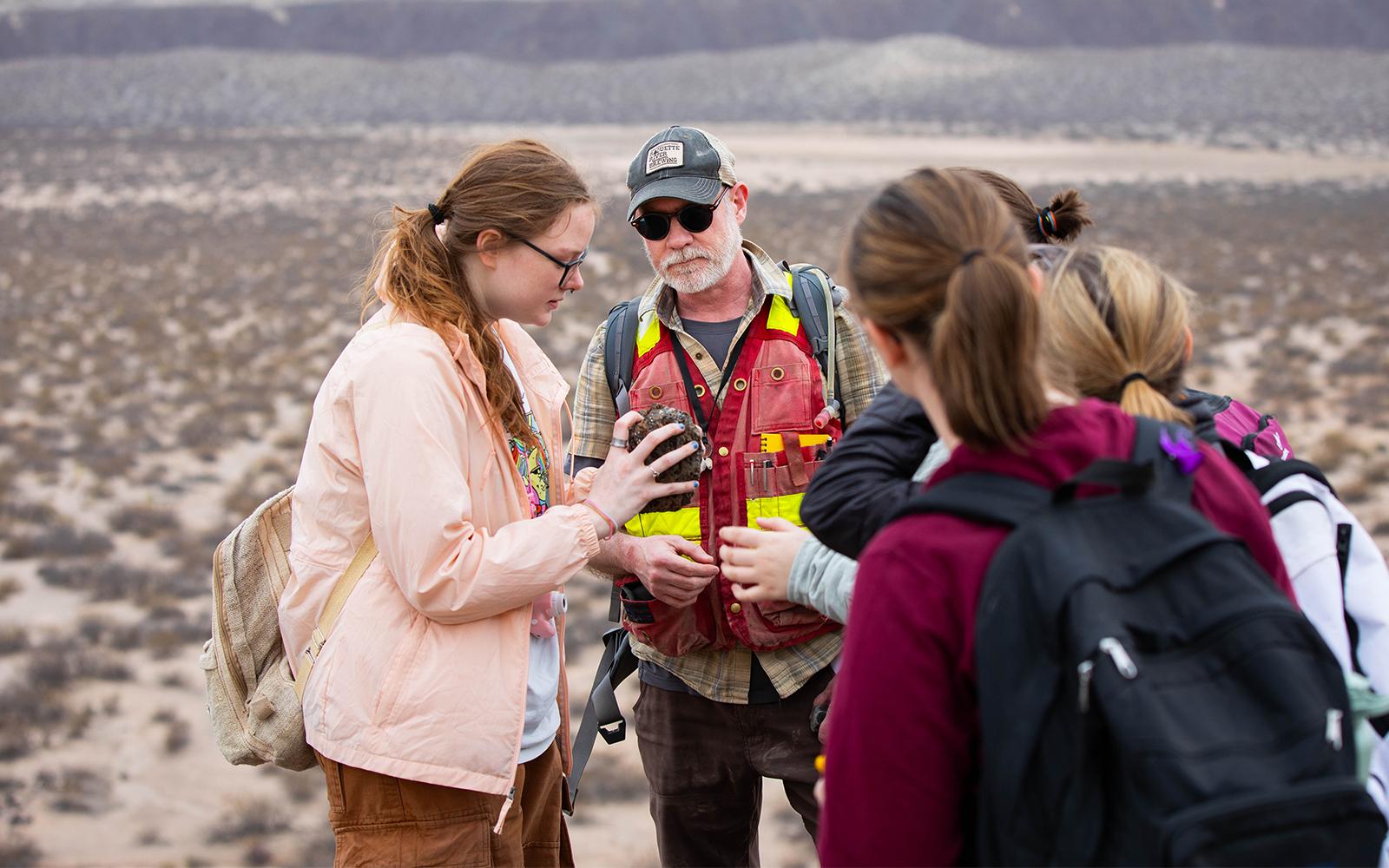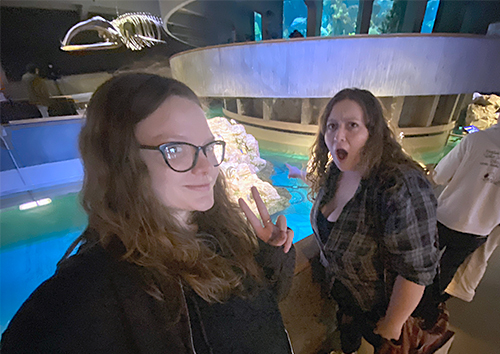When Makenzie Kuntz '26 met with a SUNY Potsdam admissions counselor at her high school, she initially had only one thought: Is SUNY Potsdam pet-friendly?
“There was no way I could leave my cat behind. I’m pretty sure the only question I asked was if they allowed pets in the dorm and once he said ‘yes,’ I was sold. I went home and looked more into Potsdam, and it was right near the Adirondacks, which was perfect. I went to an open house in October and my dad looked at me and said, ‘This is the perfect place for you.’ That blind shot in the dark ended up being one of the best decisions I have made,” she said.

Makenzie Kuntz '26
A first-generation college student from a small town on Lake Ontario, Kuntz knew SUNY Potsdam was a good fit right from the start. She arrived on campus in the fall of 2022 with her cat Chitty, and as her furry friend lounged by the window taking in the sights of Potsdam, Kuntz was busy hustling around campus from one class to the next. After a year of exploring different fields of study, she chose to pursue a degree in geology. Then, she wasted no time enrolling in Minerology, one of the more academically challenging courses within the department.
“It is taught by our brilliant Dr. Christian Schrader, but as someone who did not even know what a pyroxene was, I was in for a ride. That was one of the most difficult but most rewarding classes I think I have ever taken. Especially after our field trip, things just immediately clicked, and I knew then that geology truly was what I was made to do,” she said.
With an array of unique courses to choose from, both from within her department and across campus, she also enrolled in Ancient People and Places, a dynamic class in the Department of Anthropology taught by Dr. Tim Messner. She was so impressed with the professor and the format of the class she decided to add a minor in archaeology.
“Let me tell you, he took all of us by surprise with how upbeat he was. I do not think there was a day where he did not come in with a great attitude to share his story of the ancient past. He goes above and beyond for his students and Potsdam as a whole. Dr. Messner knows how to bring the ancient past to life, and it doesn't just stop there, he brings life to every interaction he has and there is never a dull moment,” she said.
During the Spring 2024 semester, she spent a week out west with Dr. Page Quinton, Dr. Mike Rygel and Dr. Schrader to examine the unique rock formations in west Texas and southwestern New Mexico. From the Guadalupe Mountains National Park to Carlsbad Caverns National Park, Kuntz examined massive rock formations in some of the most stunning locations in the country—and in the process, was able to more clearly comprehend concepts from her classes in a real-world setting.
“I did not understand the difference between deep marine deposits and shallow marine deposits until I saw it as we hiked the Permian Reef trail. Applied learning is crucial to truly prepare students for careers after graduation. I think applied learning is one of the most important parts of SUNY Potsdam, besides the community here. Doing things hands-on helps solidify what we are learning in the classrooms,” she said.

Photo by Ayisha Khalid '25
Now a junior, Kuntz is conducting research as a HEARTH intern through the Lougheed Center for Applied Learning’s Kilmer Labs program. Partnering with six other students and Dr. Messner, she has been exploring the historical relationships between people, technology, and the environment in and around the HEARTH—a new space on campus dedicated to experiential and experimental archaeology. Last semester, they looked at the practices of early hunters and their connection to white-tailed deer. After building tools from scratch, the students tanned deer hides and created traditional Native American garments. This spring, they have been tapping maple trees on campus, collecting sap, and boiling it down to make maple syrup.
“The HEARTH Experience is unlike anything else on campus. Hearth is the place where the past and present shake hands and gives us a window into how humans once lived long ago. It is an appreciation of how ancient peoples once interacted with one another and how important it is to maintain this healthy relationship with nature and the past."
As an extension of the applied learning activities, she has been tackling a research project on SUNY Potsdam’s maple trees, and looking at ways to avoid overtaxing the sugarbush on campus. With 40 taps on nearly as many trees, her research has been helping to inform the process for sustainably managing the sugar maples from an ethical standpoint while never adding more than two taps to a tree and only one tap to smaller trees.
“There are different ways we can extract the sap and sometimes it can be harmful, but if we respectfully collect their sap, it causes less damage to the trees,” she said. “My classmates are using the funding to cook feasts, create earth ovens, and experiment with different kinds of ancient wheat. None of this would be able to happen without the Kilmer Lab funding. This allows us to actually immerse ourselves in the ancient past and truly see how people used to live.” These research projects are made possible by the Kilmer Labs Project. All the HEARTH interns will be presenting our research at the Learning and Research fair in May, including me,” she said.
Outside of the classroom and lab experiences, Kuntz has been embracing the perks of living in the North Country with her friends. Whether it’s local trips to neighboring Canton to shop at thrift stores, taking trips to the Adirondacks, or embarking on adventures to larger east coast cities like Boston (specifically to visit their world-class aquarium), exploration is at the heart of everything that she does.
“The majority of my time is spent with friends. We are always having a great time, and spending time with people heals the soul. I’ve hiked Azure twice and a few other trails out in Tupper Lake and Lake Placid. The mountains never fail to leave me speechless; I’m from a pretty flat location originally, so I have a greater appreciation for the mountains,” she said.
As she wraps up her time at SUNY Potsdam, she is looking ahead to an exciting career as a geologist. With graduate school on the horizon, and her interests in both geology and archaeology at the forefront of her mind, she is considering an interdisciplinary approach to her career focused on geoarchaeology.
“Every class I have taken has prepared me by teaching me knowledge that is the building block of my career. I could not have imagined going to a college other than Potsdam. When I was younger, all I ever wanted was to go to a large college, but during Covid, priorities changed. Coming to a smaller school greatly improves the networks we are creating for the future,” she said. “The professors here truly are amazing. There is a community built into the fabric of SUNY Potsdam's campus, and it can easily be overlooked if you don't want to weave yourself into it, but there is space for everyone here.”
Article and photos by Jason Hunter


